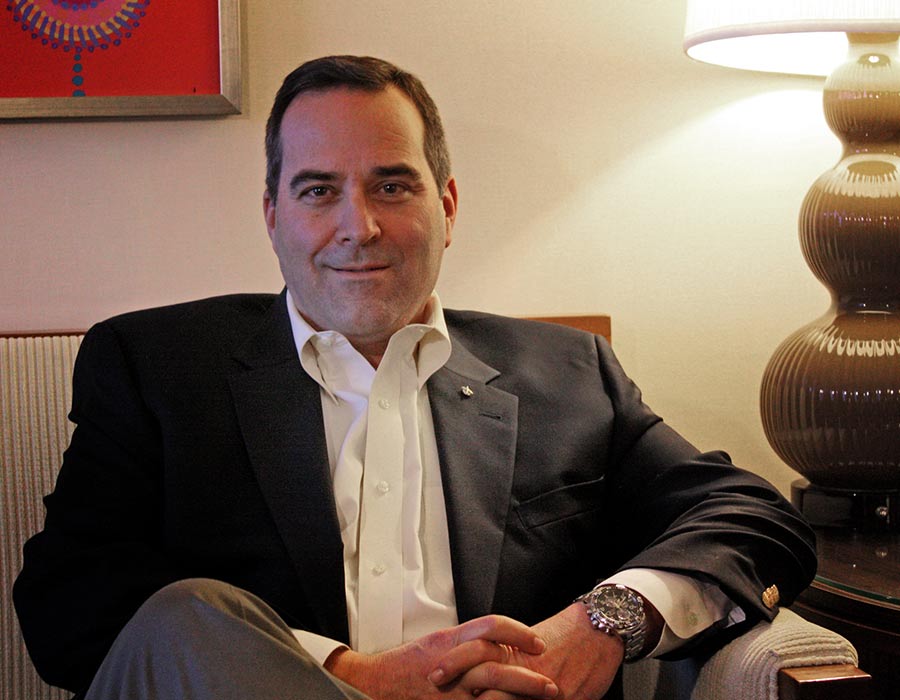Technology, Practice Management
Integrative Medicine: The Future of Healthcare
Imagine that you could practice medicine as you envisioned back when you were in medical school. You remember, that idealistic desire to help your patients get healthy! Return to that memory for a moment when you expected to be fairly compensated for your training, experience, empathy and ability to get your patients healthy. It’s coming. Are you ready? There are paradigm changes on the horizon. Practitioners who adopt this cutting edge mindset will not only stay relevant, they will thrive in their profession.

By Peter Demitry, MD, MPH
Founder, The National Foundation for Integrative Medicine
Share This Story, Choose Your Platform!
Visualize a different economic engine driving medical decisions. After all, money seems to drive everything these days. Consider what the country could do when the percentage of our economy used for healthcare is decreased from 18% of our Gross National Product ($3.2 Trillion) down to a more reasonable 7%. Imagine what we as a nation could do with that extra $1.3 Trillion dollars in cost avoidance per year. Could you start safeguarding your children’s economic future? Envision a time when the annual expenditure would no longer top $10,000 per US citizen, an expenditure yielding the lowest clinical return on investment in the world according to several independent sources.
Consider instead what it would feel like to be part of a medical system soaring from the bottom to the top in global clinical outcomes and efficiencies – out performing France, Australia, Germany, Canada, Sweden, Norway, the UK and Switzerland and all the other industrialized countries that we currently trail despite our over spending. Did you know they routinely use simple, proven, safe technologies for getting excellent clinical outcomes? We should keep our eyes searching as this is instructive for open-minded physicians because the metrics show the global medical enterprise is outperforming us in several areas.
Imagine a future when our standards-of-care would never tolerate 128,000 annual deaths in the United States from adverse drug reactions (prescription deaths), which roughly equates to 340-350 deaths per day. As stated in prior articles, our healthcare system is crashing a fully loaded 747 airliner everyday filled with our friends, colleagues, and family members who believe they are getting safe, effective and vetted medical care.
Can you imagine the outcry from the nation and its leaders if that ever happened? The equivalent loss of life is happening every year with prescription medications. We have a moral imperative and physicians have taken an ancient oath to significantly mitigate this awful situation using any & all means available. Are we really open and exploring all means available? The aviation industry invested enormous financial and human resources to achieve their brilliant and enviable safety record. Imagine what we could achieve for our patients with similar emphasis. Envision when our medical system’s reliability, and attention to detail intercedes to prevent medical misadventures as effectively as other high regret professions, such as aviation and nuclear power, where systemic errors are ruthlessly identified and crushed out of existence – ensuring that they never repeat.
Imagine the relief for 200,000 American families whose loved ones will not have to die a senseless death next year from dangerous procedures when other more safe modalities could have worked first. These are our friends, family and colleagues that will be saved. Imagine when our system will routinely save the 340,000 American lives currently lost as the profession steps up and embraces a culture where every life really does matter, rather then merely ‘saying’ that every life matters. This will and must change as the same carnage year-over-year will cause the system to erode all credibility and implode. It’s starting already. Imagine what it will mean as a profession when our health-care system isn’t the fourth common cause of death in America and admission into a hospital doesn’t require a full time family advocate in attendance as the ‘real’ insurance policy for survival.
To attain this brighter future, US medicine will need many more tools in its Doctors’ Bag in addition to its pharmaceutical arsenal. Visualize a dozen new modalities supported by clinical outcomes and evidence that could be rapidly transitioned into your clinical practice. Imagine a profession that embraces rapid safe technology transition paradigms rather than the current 14-23 years (or longer) currently needed despite FDA approval and decades of evidence to change the standard. Imagine criteria for rapid clinical adoption being based on negligible side effects, efficacy, safety and cost profiles which are openly compared with currently accepted therapies of care for your critical review. What would it be like for the insurers to add value when you decide to use these modalities and they supported you? What if the insurance ‘payor’ function left the precision of personalized practice and art of medicine to those with the doctor-patient relationship and those with the legal physician accountability for each clinical outcome instead of insisting on the one size fits all paradigm that clearly doesn’t work.
Listen to what it will sound like when personalized and precision medicine technologies become more than sound-bytes. The patients are learning and starting to ask and will soon be demanding personalized and precision at all levels throughout the health system. Do we think they will not understand that their different genotype and phenotype is irrelevant in the pharmaceutical selection and dosing without consequence? Imagine when insurance payors truly understand that the savings gained through endorsing these new modalities both increase their profits while simultaneously contributing to ‘good’ medicine and better clinical outcomes. Yes, doing ‘well’ financially by doing ‘good’.
Envision a future medical R&D culture where integrity is never a study variable and where journal editors promote multiple diverse perspectives which are institutionalized by the funding sources. Cloning of research ideas has a record of great waste. There are so many historical and current day examples. Visualize a vibrantly healthy professional culture of questioning and critically thinking clinicians with multiple perspectives and viewpoints, which is not only tolerated but also welcomed, encouraged and respected. A swarm of engaged questioning practitioners will overcome the silos of a few ‘thought leaders’ purported to solving our challenges. The swarm theory works in many applications. Consider how your practice could mature with transparent medical data presented in a clinically friendly format so you and your patients can make truly informed decisions on how to understand the clinical risks with associated costs.
Envision being able to see studies with transparent numerators and denominators and where all studies – both with positive and all the negative outcomes – are shared rather than just cherry-picking studies to drive sales.
Marvel where the profession might soar to when integrity dominates and publicly and repeatedly valued and prioritized above all else – never compromised for personal fame or for personal / corporate profit. Imagine what it will feel like to awaken each day excited to start clinic and to witness miracles each day treating your patients and seeing them leave your office visibly better. Imagine what it will feel like to be excited about practicing medicine again! This is possible today. We see and hear this today. Do you see this in your practice?



